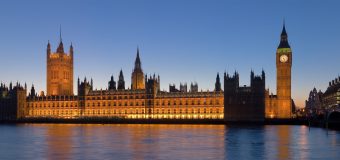Kate Hoey MP, hosted a Stakeholders Forum meeting at the House of Commons for the Professional Paralegal Register (PPR).
The PPR is the over-arching voluntary regulator that provides a voluntary scheme of regulation for all those who offer legal services in the unregulated market.
Rita Leat, Managing Director of the PPR said “the aim of the PPR is to provide voluntary regulation for Paralegals to enhance consumer protection and to promote diversity in the sector. With more than 2,000 members on the register, with numbers rising who are applying for Paralegal Practising Certificates, we are pleased to be recognised by the sector as the only recognised voluntary regulator for Paralegals.
The unregulated legal services market can now join the PPR so that they are accountable for the services that they offer. Only PPR Paralegal Practising Certificates provide protection to consumers who choose to use the services of an unregulated provider.
We are delighted that 30 key stakeholders attended the meeting, many of whom have pledged support to the PPR in its commitment to enhance PLE, improve diversity within the sector via the PPR experiential route and to enhance consumer protection.”
Kate Hoey MP said: “I was very pleased to host this important event. Paralegals will become more and more essential for the public seeking help and legal advice. I am impressed with the co-operation between all the various legal agencies and want to see the PPR continue to grow as the voluntary regulator for those providing unregulated legal services”.
Kathryn Stone OBE, Chief Legal Ombudsman, said: “The Legal Ombudsman is keen to see efforts being made to enhance consumer protection in this sector. We applaud the PPR for providing voluntary regulation to maintain high standards among paralegals.”
Espe Fuentes, Head of Which?Legal who attended the event, confirmed that Which?Legal will be joining the PPR Supporters Group that was launched at the meeting.
Derek Wood CBE QC who is a patron of the PPR commented: “It would be quite inaccurate to suggest that Paralegals offer a fall-back or second-class service for clients who cannot afford to turn to a solicitor or barrister. They offer front-line high quality bespoke advice and representation at affordable prices and make a major contribution to the administration of justice. They are guided by the ethical values which pertain across the whole of legal practice. I have been deeply impressed with the sheer diversity of legal expertise deployed by PPR members, and their commitment to serving clients in the field of specialism which they have developed. The PPR provides an important collegiality, a network of personal contacts and support, discussion and interaction”.
Derek Wood further made a request to all key stakeholders and organisations with members or employees who are paralegals not regulated under the Legal Services Act 2007 to join the PPR. He said “Our increasing body of Paralegals in England and Wales need the professional and ethical support and guidance which the PPR can offer. In that way they can develop effectively their own careers and practices. Their clients need the assurance which the PPR can give that their adviser or representative is properly accountable for the quality and integrity of the service delivered, and that redress can be obtained if anything goes wrong. The legal community at large needs the diversity of personal experience and insight which paralegals can bring to the table.”
Interviews are available, please contact Dorothy Campbell on 0203 0341486 or via email [email protected]



 As the year draws to a close, we would like to hear from paralegals on their greatest achievements in 2018.
As the year draws to a close, we would like to hear from paralegals on their greatest achievements in 2018. 